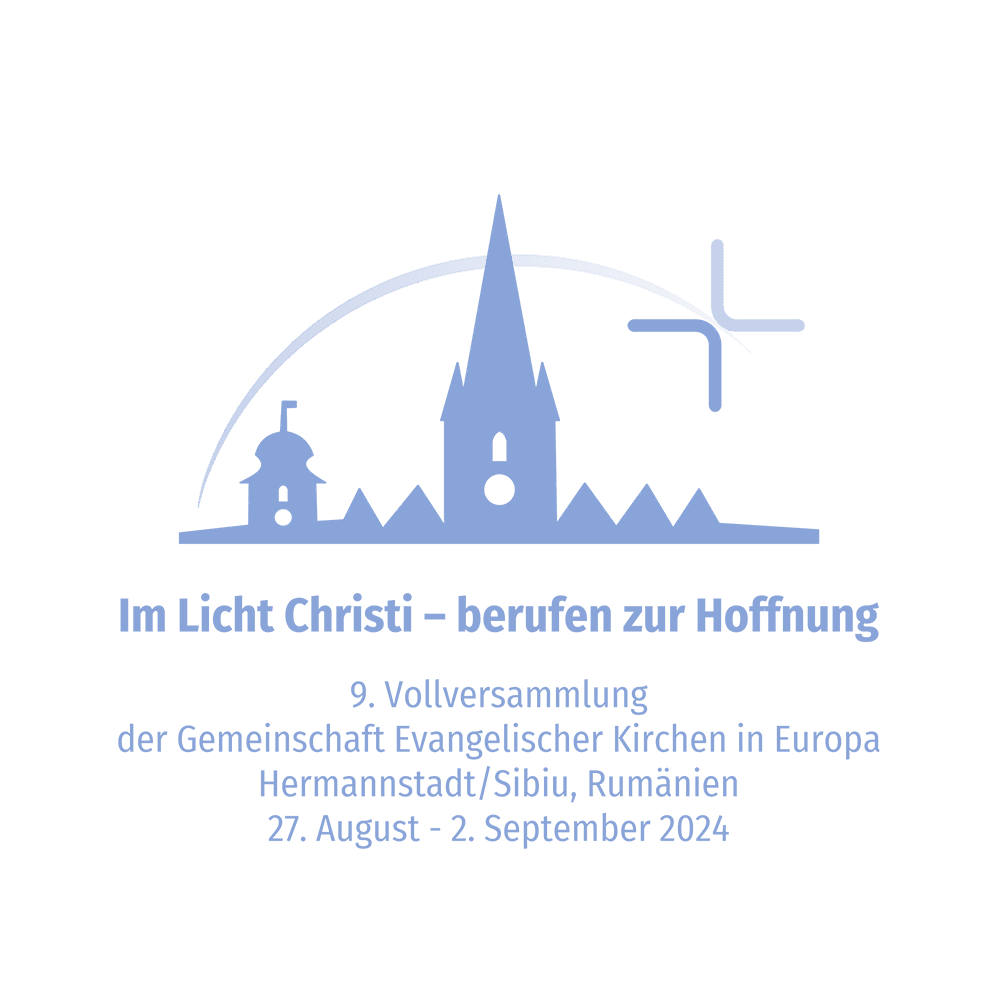History of General Assemblies
From Sigtuna to Sibiu
The Communion of Protestant Churches in Europe exists thanks to the Leuenberg Agreement of 1973, which established church fellowship between the various Protestant churches. Since then, a Lutheran pastor can preach in a Reformed pulpit or a French pastor can lead a congregation in Germany.
A theological secretariat was set up to coordinate further theological work on the document and the “Leuenberg Church Fellowship”, as it was called at the time. With the help of international groups of experts, doctrinal dialogues were set up to work through the doctrinal differences between the churches. These still existed despite the Agreement.
For example, the churches agreed on the relationship between church and state in order to develop a basis for a common ethical judgement and action-oriented statements.
Careful theological groundwork is still one of the core characteristics of the CPCE today. With the fall of the Iron Curtain, the impetus to focus more on ethical-political and thus European issues came from outside.
Suddenly, the churches and states of Europe had completely new opportunities to live and work together. The representation of the churches’ interests at the European institutions in Strasbourg and Brussels came into focus, as did the perception of the churches’ social responsibility, reconciliation and justice in Europe.
A meeting with European parliamentarians in 1998 and the fifth General Assembly of the Leuenberg Church Fellowship strengthened the structure of the previously loose union. The aim was to discuss the theological and ethical aspects and the humanitarian consequences of political decisions from a Protestant perspective, to bring together Protestant voices on fundamental issues and to make them heard by the European public.
This was intended to strengthen the “Protestant voice in Europe”. Subsequently, the church community expressed its views on the contribution of Protestantism to the development of democratic forms of government and the changes in society and the church. This work led to the renaming of the Leuenberg Church Fellowship as the Community (nowadays Communion) of Protestant Churches in Europe, or CPCE for short, on the thirtieth anniversary of the Agreement.
The CPCE office was located in Berlin at the time, with a branch office in Brussels coordinating the political work on European issues. Doctrinal discussions, expert groups, meetings and conferences still form the focus of its work today. Since 2007, the CPCE office has been located in Vienna.
General Assemblies
The working content of the Communion of Protestant Churches in Europe, until 2003 the Leuenberg Church Fellowship, is determined by the General Assemblies of the member churches. The General Assembly is ultimately also the body that adopts substantive, i.e. theological or ethical, documents as valid for the CPCE as a whole. It is in the nature of the Protestant churches that this validity is not binding under canon law.
1976: Sigtuna
1987: Strasbourg
- Church of Jesus Christ (LT1): Basic work on the meaning of the church from a Reformation perspective alongside the Roman Catholic or Jewish understanding.
- Sacraments, ministry, ordination (LT2): The Leuenberg Agreement leads to mutual recognition of baptism, communion, ministry and ordination.
- Texts on ethical judgement (LT3): Ethical decision-making is the basis for public positioning in any socio-political respect. The clarification of ethical judgement therefore makes this possible.
- Christian witness on freedom (LT5): Results of discussions between Eastern and Western churches in the period from 1989 onwards, reflecting the fundamental political upheavals of the time.
1994: Vienna
- Leuenberg, Meissen and Porvoo (LT4): Dialogue discussions with two other church communities, the Meissen Declaration (Anglican churches) and the Porvoo Declaration (Nordic churches).
- Church and Israel (LT6): Basic text on the relationship between the Protestant churches and Judaism
- Church, people, state, nation (LT7): Reflections on the Protestant churches in the pluralistic societies of Europe, also under the impression of the political changes in Eastern Europe.
- Law and Gospel (LT10): the relationship between law and gospel against the background of current ethical judgements.
2001: Belfast
- Ecclesiology (LT8): Consultation with the Conference of European Churches, which includes the Orthodox churches, on questions of church understanding.
- Baptism (LT9): Consultation with the European Baptist Federation on questions of church understanding.
- CPCE-CEC (LT11): Further consultations with the Conference of European Churches
2006: Budapest
- Baptism in the life of the churches (LT12): Different approaches and understandings of baptism from Lutheran, Reformed and United perspectives as well as on the part of the Orthodox and Baptist traditions.
- Ministry, ordination, theological education (LT13): Basic texts on ministry, ordination and building on these to consequences for theological education and training.
- Scripture, confession, church (LT14): Basic work on the understanding of the Bible as well as on the question of positioning in ecumenical dialogues.
- Social-ethical contributions (LT15): Statements on human rights, peace issues and current challenges in European politics.
2012: Florence
- Church Communion (LT16): Clarifies the theological concept of church communion, taking into account the latest ecumenical discussion.
- Education for the future: Recommendations for further theological training in the CPCE.
- Plurality of religions: Recommendations on living together in religiously plural societies
- Theology of diaspora: Reflections on the life of the church in minority in a pluralistic society
2018: Basel
- Christian speaking of God: Reflections on the Relevant Communication of the Gospel.
- Practice and theology of the Lord’s Supper: What does it mean to invite people to the Lord’s Supper in a multicultural world? Who is invited?
- Sexuality and gender: How can church fellowship be preserved in the field of tension between different views of sexuality and gender?
- Democracy as a challenge for churches and societies: new reflections on the understanding of decomcracy in Protestant churches in the face of current political upheavals
- Consequences of church communion: role and tasks of the CPCE
- Church in rural areas
